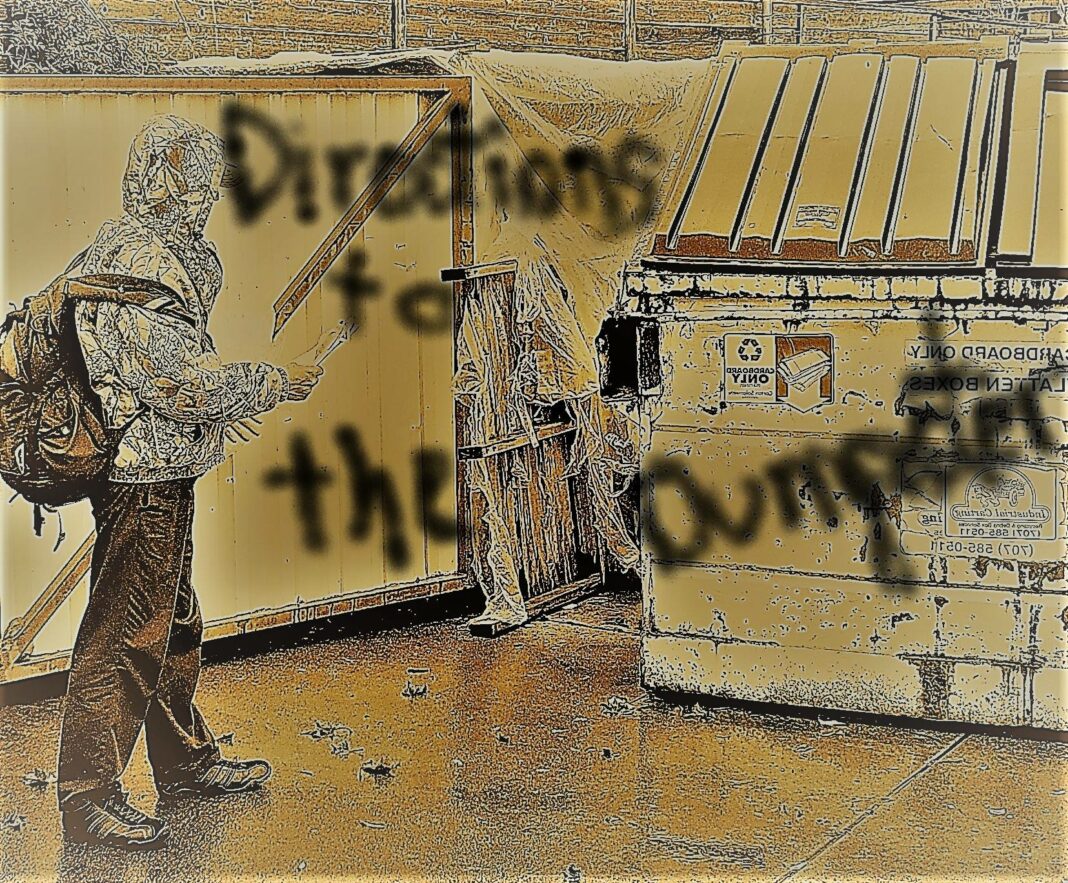Edward Campagnola has stories to tell. For several years, Campagnola’s story was that of living as an unsheltered resident in the North Bay, and he spent five years writing that account in his debut novel, Directions to the Dumpster, released last year and now available on Amazon.com.
The book traces Campagnola’s journey in homelessness and his attempts to get out of it while dispelling preconceptions about homelessness and the stigma surrounding it through compassionate writing.
In April of this year, the Pacific Sun ran an article about Campagnola’s struggles to find housing and his efforts to publish his novel, and soon, after another local publication picked up the story, a homeowner in Petaluma reached out to Campagnola and offered him a place to stay.
“It’s an amazing place, I have a room and a garden, and there are dogs that I’ve befriended,” Campagnola says. “I have a place to write, and the resources.”
With those resources, Campagnola has already nearly completed his second manuscript, titled Directions to Mercy Street. The new novel picks up where Directions to the Dumpster left off, and follows Campagnola’s journey during the last year as he found redemption in his writing and hope in his new housing.
“It was rough with ‘Dumpster,’ without the resources,” Campagnola says of writing his first novel. Not only was he forced to write in notebooks and on library computers, but the raw intensity of some of the experiences in the novel—such as being the victim of a violent, random attack on a California-bound Greyhound bus that left him with PTSD—were difficult for him to revisit emotionally.
Campagnola wrote Directions to the Dumpster as a form of therapy, and to give society a better understanding of homelessness in America.
Directions to the Dumpster is a phrase Campagnola uses literally and figuratively, arguing that in a capitalist society, the homeless are seen as worthless in so much as they are often given directions to the dumpster when they do reach out and ask for help.
This argument could extend to housing itself in the North Bay, as Campagnola failed to find a room to rent before his local publicity; even with a monthly budget of 800 dollars to spend and groups like Catholic Charities helping him search.
Now in a secure place physically, Campagnola’s writing is flowing out of him like never before and Directions to Mercy Street is packed with emotionally-charged true stories from the last year, including how the Covid-19 pandemic looked to unsheltered residents.
“I’m on the street when it begins,” he says of the pandemic. “I saw nobody on the street, and I went into this speech about the meek inheriting the whole thing. And this guy listening to me says, ‘nice speech, but save it.’”
Currently, Campagnola is editing Directions to Mercy Street and looking for a publisher to help get the novel out to a wider audience. He is also already writing other manuscripts, and coming up with new projects and even several songs.
“I have been humbled to my knees,” Campagnola says, with regards to finding housing. “The gratefulness that I feel is without bounds.”









